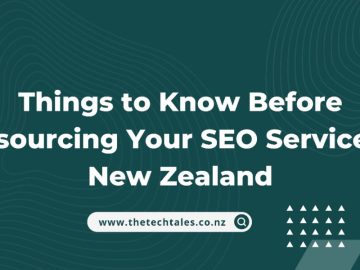Local keyword research is essential for businesses wanting to attract customers in specific geographic areas. By understanding and using the right local keywords, businesses can improve their visibility in search engine results, drive more traffic to their websites, and ultimately increase sales. This guide will walk you through the importance of local keywords, how to identify and use them effectively, and advanced strategies to stay ahead of the competition.
Key Takeaways
- Local keywords help businesses appear in search results for specific areas, attracting more local customers.
- Using keyword research tools can simplify the process of finding effective local keywords.
- Both explicit and implicit local keywords are important for a comprehensive SEO strategy.
- Optimizing content with local keywords involves on-page SEO, creating location-specific content, and using local keywords in meta tags.
- Regularly tracking and adjusting your keyword strategy based on performance metrics is crucial for ongoing success.
Understanding the Importance of Local Keywords

How Local Keywords Impact SEO
Local keyword research helps you understand how people are searching for companies, products, or services like yours in a specific geographic area. The biggest difference between general and local keyword research is keyword structure. General keywords might be “best coffee beans” or “floss picks.” Local keywords include location-specific terms. Like the state, city, or neighborhood (e.g., “best coffee shop in Miami” or “dentist near me”). A big part of local keyword research is identifying the exact location-specific modifiers your audience uses in their searches. Especially for businesses like yours.
Benefits of Targeting Local Keywords
Targeting the correct search terms forms the basis of every effective local SEO strategy. It is the only way to be sure that your efforts are focused on the terms that your target customer is using to find your products and services via local search. Basing your keyword selection on guesswork opens you up to the risk of using incorrect terms, having to narrow a keyword base, and failing to account for all variations of relevant search phrases. A research-based keyword list allows you to:
- Create landing pages that focus on searchable words and phrases.
- Understand search behavior better.
- Deepen your understanding of your target audience.
- Find related markets to expand into, and/or refocus your products or services to.
- Discover more ways to attract local consumers.
Case Studies of Successful Local Keyword Strategies
Take Kody Smith, for example. He strategically used keyword research to inform his local SEO strategy. In doing so, he skyrocketed his former side hustle into a full-time business with nearly $300,000 in annual revenue. Putting the effort into local keyword research gives you a chance to replicate Kody’s success.
Identifying Local Keywords for Your Business
Using Keyword Research Tools
To start, you need to use keyword research tools. These tools help you find out what people are searching for in your area. They provide data like the average number of searches per month. For example, tools like Semrush’s Keyword Magic Tool can be very helpful. You can enter a keyword and see a list of related local keywords. Make sure to filter the results to find the ones that are most relevant to your business.
Analyzing Competitor Keywords
Another important step is to look at what your competitors are doing. By analyzing their keywords, you can get a good idea of what works in your area. Use tools to see which keywords your competitors rank for. This can give you a list of keywords that you might want to target as well.
Incorporating Customer Feedback
Don’t forget to listen to your customers. They can provide valuable insights into what keywords to use. Ask them how they found your business and what terms they used to search. This can help you identify keywords that you might not have thought of. Meeting customer expectations is crucial for business success, and their feedback can guide your keyword strategy.
Always keep your keyword list updated. Trends change, and so do search behaviors. Regularly revisiting your keyword strategy ensures you stay relevant.
Explicit vs. Implicit Local Keywords
When it comes to local keyword research, understanding the difference between explicit and implicit local keywords is crucial. Both types play a significant role in how search engines like Google determine the local intent behind a user’s search query.
Defining Explicit Local Keywords
Explicit local keywords are those that clearly specify a location or include a spatial term like “near me.” For example, if someone searches for “locksmith in London” or “locksmith near me,” they are using explicit local keywords. These keywords make it obvious that the user is searching for something in a specific area.
Understanding Implicit Local Keywords
Implicit local keywords, on the other hand, do not specify a location but still have local intent. For instance, if someone simply searches for “locksmith,” Google can use various signals to understand that the person is looking for a locksmith nearby. Google’s algorithms are sophisticated enough to detect this local intent even without explicit location terms.
Examples of Both Types
Here are some examples to make it clearer:
- Explicit Local Keywords:
- Implicit Local Keywords:
It’s important to focus on both explicit and implicit local keywords in your research. While explicit keywords are easier to identify, implicit keywords can capture a broader audience who may not include location terms in their searches.
By understanding and utilizing both types of local keywords, you can improve your local SEO strategy and ensure your business appears in relevant search results.
Optimizing Content with Local Keywords


On-Page SEO Techniques
When it comes to on-page SEO, using local keywords is crucial. Incorporate your local keywords naturally into your headings, subheadings, and body text. This helps search engines understand your content’s relevance to local searches. Also, make sure to include your business’s name, address, and phone number (NAP) on every page. This consistency boosts your local SEO.
Creating Location-Specific Content
Creating content that focuses on specific locations can help you attract local customers. Write blog posts or articles about local events, news, or community activities. This not only engages your audience but also signals to search engines that your business is active in the community. For example, if you run a bakery in Miami, you could write about local festivals or popular Miami desserts.
Utilizing Local Keywords in Meta Tags
Don’t forget to use local keywords in your meta tags. This includes your title tags, meta descriptions, and even image alt texts. Meta tags are important because they help search engines understand what your page is about. For instance, a title tag like “Best Bakery in Miami” can make a big difference in your local search rankings.
Remember, the goal is to narrow your focus to find the right list of local keywords that will drive traffic to your site. Consistently updating and optimizing your content with these keywords will help you stay ahead in local search results.
Tracking and Measuring the Success of Local Keywords
Setting Up Local Rank Tracking
To see how well your local keywords are doing, you need to set up local rank tracking. This helps you know where your website stands in search results for specific keywords. Here’s a simple way to do it:
- Go to your SEO tool and find the rank tracking feature.
- Add the keywords you want to track.
- Choose your location (city, state, or zip code).
- Set how often you want the data to update.
By doing this, you can keep an eye on your rankings and make changes as needed.
Analyzing Traffic and Conversion Data
Once you have your rank tracking set up, the next step is to look at your traffic and conversion data. This tells you if people are visiting your site and taking action, like making a purchase or filling out a form. Use tools like Google Analytics to see:
- How many visitors come from local searches
- Which keywords bring in the most traffic
- Conversion rates for those keywords
Analyzing this data helps you understand what’s working and what needs improvement.
Adjusting Strategies Based on Performance Metrics
After you have all your data, it’s time to adjust your strategies. If a keyword isn’t performing well, you might need to tweak your content or try a different keyword. Look at metrics like:
- Search volume
- Click-through rates
- Conversion rates
Make changes based on these metrics to improve your local SEO. Remember, the goal is to attract more local visitors and turn them into customers.
Keeping track of your local keywords is essential for staying ahead of the competition. Regularly updating your strategies based on performance metrics can make a big difference in your local SEO success.
Advanced Strategies for Local Keyword Research


Leveraging Long-Tail Keywords
Long-tail keywords are longer and more specific phrases that people use when they are closer to making a purchase. These keywords might have lower search volumes, but they often have higher conversion rates. For example, instead of just targeting “bakery,” you could target “best gluten-free bakery in downtown.” Using long-tail keywords can help you attract more qualified traffic to your site.
Using Geo-Modifiers Effectively
Geo-modifiers are words that specify a location, like a city or neighborhood. Adding these to your keywords can make them more relevant to local searches. For instance, instead of just “hair salon,” you could use “hair salon in Brooklyn.” This makes it clear that your business is in a specific area, helping you attract local customers. Geo-modifiers are essential for making your local campaign more effective.
Exploring Seasonal and Trend-Based Keywords
Seasonal and trend-based keywords are those that gain popularity during certain times of the year or due to current events. For example, “best Christmas cookies in Chicago” might be a popular search during the holiday season. Keeping an eye on these trends can help you adjust your keyword strategy to capture timely traffic. Use tools like Google Trends to identify these keywords and incorporate them into your content strategy.
By focusing on these advanced strategies, you can make your local keyword research more effective and drive more targeted traffic to your business.
Common Mistakes to Avoid in Local Keyword Research


When diving into local keyword research, it’s easy to make mistakes that can hinder your success. Here are some common pitfalls to watch out for and how to avoid them.
Overlooking Implicit Keywords
One major mistake is ignoring implicit keywords. These are search terms that don’t explicitly mention a location but still have local intent. For example, someone might search for “locksmith” without adding a city name, but they still want local results. Ignoring these can limit your reach.
Ignoring Competitor Analysis
Another common error is not analyzing your competitors. By understanding what keywords your competitors are ranking for, you can identify gaps and opportunities. Use tools to see which keywords are driving traffic to their sites and consider incorporating those into your strategy.
Failing to Update Keyword Lists Regularly
Lastly, failing to update your keyword lists can be detrimental. Search trends change, and so should your keywords. Regularly review and update your keyword list to stay relevant and competitive.
Keeping your keyword list fresh and relevant is crucial for maintaining a strong online presence.
By avoiding these common mistakes, you can improve your local keyword research and boost your local SEO efforts.
Frequently Asked Questions
What is local keyword research?
Local keyword research is the process of finding the keywords people use when searching for businesses, products, or services in a specific area. It helps you understand what terms your potential customers are using to find businesses like yours.
Why are local keywords important for SEO?
Local keywords are crucial for SEO because they help your business appear in search results when people look for services or products in your area. This can increase your visibility, drive more traffic to your website, and ultimately lead to more customers.
How do I identify local keywords for my business?
You can identify local keywords by using keyword research tools, analyzing what keywords your competitors are using, and incorporating feedback from your customers about how they search for your services.
What are explicit and implicit local keywords?
Explicit local keywords include specific location terms like ‘bakery in Miami.’ Implicit local keywords don’t mention a location but still aim to find local results, like just searching ‘bakery’ while in Miami.
How can I optimize my content with local keywords?
To optimize your content with local keywords, use them in your titles, headers, and throughout your text. Also, include them in meta tags and create content specific to your location, like blog posts about local events or news.
What are some common mistakes to avoid in local keyword research?
Common mistakes include ignoring implicit keywords, not analyzing competitor keywords, and failing to update your keyword list regularly. These can lead to missing out on potential traffic and customers.





